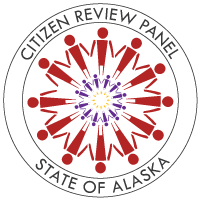 High rates of turnover are leading to inconsistency at the Office of Children’s Services, which operates the state’s foster care system. That’s according to a new study released last month focusing on surveys with the child protection agency’s frontline workers.
High rates of turnover are leading to inconsistency at the Office of Children’s Services, which operates the state’s foster care system. That’s according to a new study released last month focusing on surveys with the child protection agency’s frontline workers.
For the past decade, there’s been a 30 percent staff turnover rate at OCS. University of Alaska Anchorage professor Diwakar Vadapalli, who heads the community oversight group Citizen Review Panel, and he said this causes a problem. OCS has hundreds of pages of rules and policies on how to run the foster care system, but with that many employees coming and going, it’s hard to make sure everything is interpreted consistently.
“You can’t make a rule for everything, so there is room for intent. And that’s where the challenge comes,” Vadapalli explained. “What is the intent of this particular sentence in the practice model, and how do I implement it as a worker?”
The practice model is the overarching set of definitions and explanations that govern how OCS is supposed to operate and interact with families. Different people interpret parts of that model in different ways, he said.
Vadapalli and his students recently completed the first external survey of OCS workers. They analyzed the data with a focus on frontline workers, the people interacting with the community. Vadapalli said they found that those workers do not have a consistent understanding of how OCS is supposed to work.
The report also shows that workers are getting just two to three weeks of formal training before interacting with families, “which is definitely not sufficient, even if you have a masters in social work…But that’s what we can probably afford at this point.”
Most new recruits don’t have a masters degree. Vadapalli says there isn’t a big enough pool of social work graduates to fill all of the jobs at OCS, especially given the turnover, so the agency lowered its standards. That means workers don’t come into the agency with some of the hands-on training that social work graduates have.
He says some workers are getting on the job training, but he doesn’t know the details because the survey didn’t ask specific questions about it. That was another issue Vadapalli pointed to: his team didn’t get to design the survey. Instead, OCS gave them the same format they’ve been using for years, limiting what information could be gathered. But Vadapalli did find that frontline workers want more training.
The survey results also show that most frontline workers don’t think the communities they work in understand what OCS does and why. Vadapalli says this perception negatively impacts the workers’ interactions with families because they feel uncomfortable.
If I’m a worker, he said, “I’m constantly thinking ‘ok, what I shouldn’t do here, so I don’t get into trouble.’ Instead of focusing on child or family and trying to do the best to make their lives better.”
Vadapalli is clear in saying that this report reflects the perceptions of the workers. The community may know more than workers think. But, he says OCS and community oversight groups, like the Citizen Review Panel, need to help educate the community about OCS and build stronger relationships.
Anne Hillman is the healthy communities editor at Alaska Public Media and a host of Hometown, Alaska. Reach her at ahillman@alaskapublic.org. Read more about Anne here.





